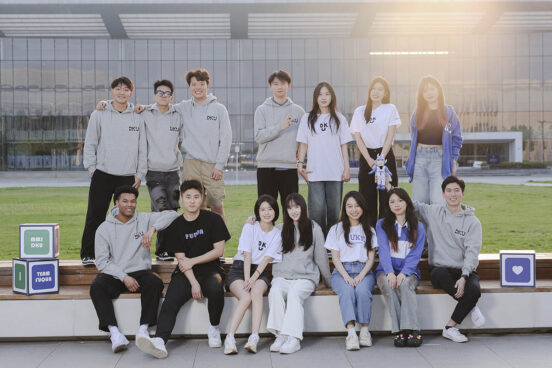Duke MMS Student Blog

Working at the Intersection of Business and Climate
While exploring climate-focused consulting projects, I discovered a deep passion for sustainability, particularly the power of carbon markets to drive change.

When I first joined the MMS program at Fuqua, I had no clear sense of where my career would take me. That changed when I started exploring climate-focused consulting projects during the pandemic and discovered a deep passion for sustainability, particularly the power of carbon markets to drive change. Since then, I’ve followed that passion into roles at Accenture and now at Agerpoint, where I work at the intersection of technology, data, and climate solutions.
In this Q&A, I reflect on that journey, how Fuqua shaped it, and the real-world challenges I now tackle in the evolving field of sustainable land use and resource management.
What first sparked your interest in working at the intersection of business and climate? How has that interest evolved since your time in the MMS program?
I came into the Fuqua MMS program with a bit of uncertainty about the direction I wanted to take my career. I was fortunate to land a strategy analyst role at Accenture at the start of the program, but I recognized that I could not remain a “generalist” forever and would eventually have to specialize in a particular field.
When COVID forced us to transition to online learning during the second half of the MMS program, I decided to use the time to explore different industries so that I would have a better knowledge base entering consulting.
It was at this time that Fuqua spun up the Fuqua Volunteer Corps to allow students to get real-world work experience supporting non-profits. I volunteered for TIST, a tree-planting program that worked with smallholder farmers in East Africa. It was here that my passion for and my understanding of the climate space really blossomed. I grappled with the real challenges that farming communities in East Africa face because of climate change and learned how these farmers were able to improve their lives, their community, and the world through nature-based solutions like tree-planting. I became obsessed with the concept of carbon markets and other climate mitigation solutions, and I was determined to immerse myself in this world upon entering consulting.
After a few early twists and turns navigating Accenture, I connected with a managing director who shared my passion for market mechanisms that can drive sustainable behavior change. I leveraged my carbon markets subject matter expertise to join the digital assets team within Accenture’s Tech Innovation practice.
Reflecting on my time with TIST, I began to critically think about how innovative technologies can solve the real problems in carbon markets. I worked with enterprises and non-profits to devise strategies and concepts to resolve their challenges. Over time, I came to realize that all market participants struggle to obtain high-quality data, and I started to view the entire world of sustainability through this lens.
Naturally, Agerpoint’s innovative data collection and data fusion solution caught my attention and has been a perfect fit for me. As the Director of Strategy and Business Development, I get to work at the intersection of AI, spatial intelligence, and sustainable land resource management to enable better real-time decision-making for farmers and landowners to improve food security and natural restoration.
You joined Agerpoint as the Director of Nature and Carbon. What did that role involve?
When I initially joined Agerpoint, I was tasked with developing the strategy to expand the company’s business beyond data collection for agriculture into monitoring nature restoration. My understanding of carbon markets helped me identify the product market fit for our solution among ecosystem players.
I attended conferences and developed relationships to understand market developments and specific pain points that people face in the industry. I communicated this information back to our product development team to help them understand which features to prioritize.
My role also involved bringing in new business from folks working in nature restoration who needed to collect data to monitor their progress. This data is crucial for programs to track patterns, identify where there might be anomalies, and generate reports to receive funding for their efforts. I created project plans and worked closely with client teams to help implement our tools into their programs and evaluate if our tools were suitable long-term fits for their organization.
What kind of real-world challenges do you face in your job? What do you think the future of this field looks like?
Since joining Agerpoint, my role has evolved from Director of Nature and Carbon to Director of Strategy and Business Development. While I still oversee our nature and carbon portfolio, I think the expansion of my role and responsibilities is reflective of the evolving nature of the “sustainability” and “climate” space.
Now more than ever, companies are facing enormous pressures across their value chains due to climate change, particularly those that operate in land-use sectors. Sustainability is a practical business decision. To demonstrate the value of sustainable decision-making, corporations are demanding evidence to justify behavior changes and operational adjustments. Data is crucial to demonstrate the business case for sustainable policies and practices. Consequently, the ability to collect high-quality field data, rapidly analyze it, and provide insights that improve decision-making will determine which companies can withstand the increasing pressures we face from climate.
Agriculture, for instance, has been heavily affected by climate change. Crops are very sensitive to weather patterns, and the output of our land is inextricably interconnected with environmental factors. Rising food demand and shrinking margins have placed enormous pressure on this vital (but often overlooked) sector. It is crucial for agriculture value chains to monitor the growth and health of plants, quantify crop yields, and optimize resource use in ways that reduce environmental impacts. This requires not only advanced technologies but also the ability to implement data-driven solutions at scale.
The future of this field will likely see greater integration of affordable monitoring systems with artificial intelligence to ensure that data collection translates to tangible outcomes. As we face increasing climate-related challenges, the ability to make informed decisions that improve both the bottom line and environmental outcomes will be a competitive differentiator for companies. There will be an ongoing demand for professionals who can bridge the gap between technology, business, and sustainability – those who understand the complexities of our changing world but also apply this understanding in innovative ways to drive real-world impact.
What advice would you give to Duke students or recent grads who are passionate about sustainability or climate-focused careers but aren’t sure how to break into the field?
Make the most of your time at Duke to explore new topics or disciplines to see what interests you. Here are a few guiding principles I’ve found valuable throughout my journey:
- “Sustainability” and “climate” are relevant for all industries and businesses. While there are certainly some industries that on the surface might seem more aligned than others, we live in a resource-constrained world with increasing pressure to operate efficiently and create value at low costs. Understanding how to manage those finite resources and solve operational problems in a way that promotes long-term success is inherently sustainable.
When thinking about a career in these fields, I encourage students to explore beyond surface problems related to climate and think about the interconnectedness of our systems. In this way, students can expand the range of options available and identify opportunities that might align more with their interests, skills, and experiences. - Be patient and strategic with your career. Get any real-world experience that you can and develop skills that can be applied in any business context, even if they seem adjacent or unrelated to sustainability. Becoming skilled in something and demonstrating that you can bring value opens doors to explore opportunities in areas more aligned with your interests. Make sure you can sustain your personal needs along the way (e.g., financial). Once you have a solid foundation, you can take more risks and ask for the opportunities you want.
- Aspiring to solve climate problems and promote sustainability must be balanced with pragmatism. Change does not happen overnight and often requires working with (or at least with the help of) legacy systems and structures. Getting people to act differently is especially difficult when the incentives are not aligned with values.
I encourage students to not subscribe to climate “cancel culture” and instead work to understand why things are the way they are to identify the right solutions or figure out the right way to convince people to change their behaviors.
- While hard work and individual effort are certainly valuable, building and maintaining authentic relationships is equally important. Take the time to connect with people who share your values and genuinely take an interest in them — not just for what they can offer you, but because meaningful connections are fulfilling in themselves.
You’ll find that these relationships open doors to opportunities you might not have anticipated and often lead to unexpected collaborations or insights that help move you forward in your career.




